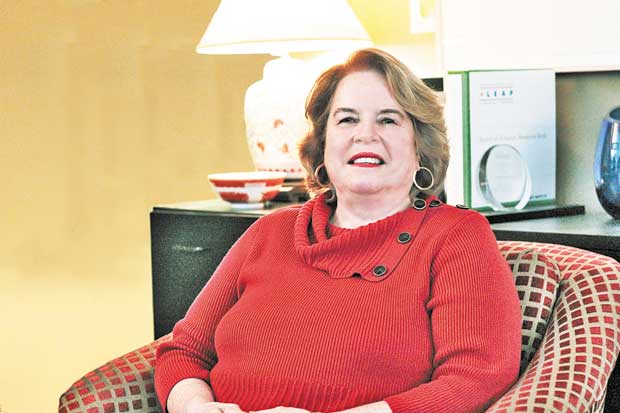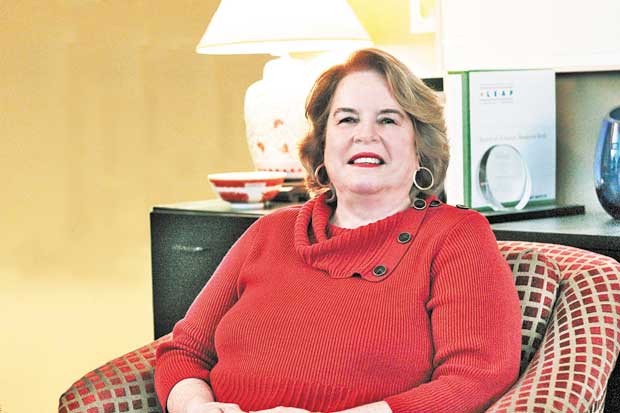Panelists talk about unique challenges to aging in the LGBT community

Candy Marcum
DAVID TAFFET | Senior Staff Writer
Talking about getting old is difficult for anyone. In the gay community, it seems almost impossible.
“Nobody likes to talk about aging except pharmaceutical companies,” said community counselor Candy Marcum. She’s one of the panelists who will be discussing “A call for creating social spaces and support for the aging LGBT” at this weekend’s conference on aging in the LGBT community.
She said most people live in a world that gets smaller and smaller as the age. They lose friends. If they lose the ability to drive, they have fewer opportunities to socialize.
In the LGBT community, we have very few role models of people growing old, Marcum said. Fewer people came out 50 years ago. Many from that generation who were out died during the height of the AIDS crisis.
Others, who have few friends left, are isolated.
“The only good story we have is Jack and George,” Marcum said, referring to Jack Evans and George Harris. The men had been a couple for more than 55 years when Evans passed away last month. But Harris still drives and Evans remained involved, going to church, out to dinner and participating in community events through the end of his life.
“Jack looked hip with a bad hip,” Marcum said.
She said one thing the conference will examine is how to have a fulfilling life to the end.
“I might not be as mobile as I once was, but I can have a meaningful life,” she said.
Portia Cantrell is a nurse who serves on the board of the Coalition for Aging LGBT.
She’s concerned with treatment of LGBT people by the medical community that can force some people into the closet just to receive care.
“I was at UT Southwestern for a procedure recently,” Cantrell said. “Before the procedure, they asked me for my emergency contact.”
When she gave the name, she specified it was her wife. But the nurse kept referring to her as her “friend.”
“I was already going through some something stressful,” she said, “and the nurse was showing she doesn’t approve of my ‘lifestyle.’” And if the caregiver doesn’t approve of how you live your life, Cantrell questioned, is that person going to care for you?
As a nurse, she said she’s heard stories from coworkers of someone they thought needed to be prayed over because they were sinners.
Cantrell’s experience was just a procedure and within a few days, she was back home. What happens to someone who isn’t going back home, because they’re now in assisted living or in a nursing home?
“You want pictures out,” Cantrell said. When a spouse visits, “you want to hold his hand. When you get disapproving looks, how is that going to make you feel? How will it affect your health?”
Cantrell thinks the AIDS crisis still affects both men and women who lived through the worst years of that era as they age. Many men didn’t expect to live very long, so they made no plans for retirement. And big, strong women who were the caregivers for their sick and dying male friends don’t want to feel weak.
“We’re the ones who took care of the guys and now we’re vulnerable,” Cantrell said.
To make it worse, said coalition board member Sam Tornabene, there’s quite a bit of agism in the LGBT community.
While LGBT people create families of choice, those people tend be around the same age, he said. So caregivers are other older people who happen to be healthier at the time.
This article appeared in the Dallas Voice print edition July 22, 2016.

